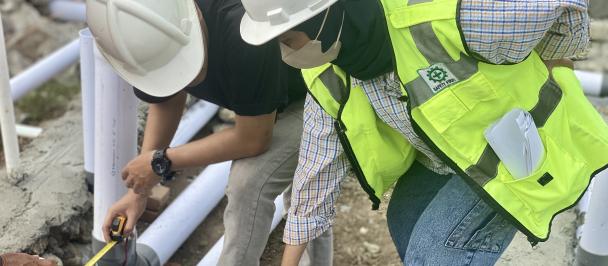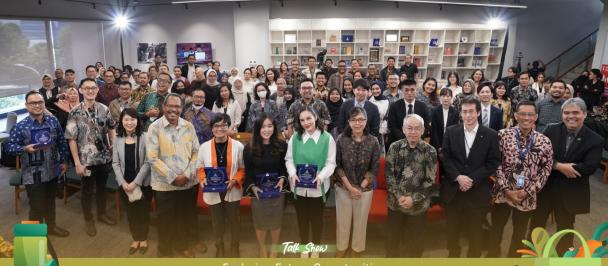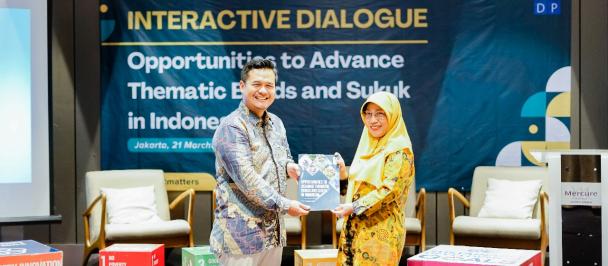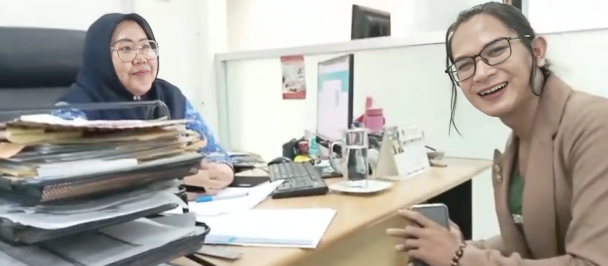Gold mine worker turned entrepreneur, Yunita Bucu learnt first-hand the danger of toxic mercury the hard way. She spent years being exposed to the chemical substance at a makeshift gold mine in Indonesia’s Central Kalimantan province.
Despite being aware of the risks, she continued using the harmful substance to extract gold from rocks and other earthy materials. Before long, she suffered from painful blisters and peeling skin. Other women miners, particularly those who were pregnant, were among the hard-hit survivors.
“Mercury was the fastest and easiest way to extract gold. If I had stopped working, I would not have earned money,” she said.
Yunita was one of the few ‘lucky ones’ who experienced less severe effects of mercury, compared to her pregnant peers. The ill effects of mercury on pregnant women are so severe that it could still be passed through breast milk. Babies exposed to mercury can also have developmental mental and physical problems, from IQ loss to reduced language and memory skills.
Fast forward 14 years later to the present day, Yunita is now a self-made gold buyer, and she leads an anti-mercury campaign to protect her community of artisanal gold miners in her Central Kalimantan hometown. Her past mining experience has emboldened her mission to stop mercury use in the Indonesia’s Artisanal and Small-scale Gold Mining (ASGM) sector, which supports the livelihoods of around 500,000 people in the country.
Indonesia’s ASGM sector is one of the largest in the world, making it an influential player in the global gold industry. And yet mercury use in this South-East Asia nation is still quite rampant, as Indonesia is ranked in the top ten of countries using mercury in the world. Mercury is typically used in the ASGM sector to extract gold from ore. The chemical element is extremely poisonous and can be absorbed by touch, inhalation, and consumption.
Yunita’s testimony was one of the highlights of a recent UNDP’s webinar which looked at the impact of mercury in ASGM on pregnant women and children. The webinar was hosted by UNDP’s project called Global Opportunities for Long-term Development of ASGM Sector Integrated Sound Management of Mercury in Indonesia’s ASGM (GOLD-ISMIA). Otherwise known as planetGOLD Indonesia, the Project is a five-year partnership between UNDP and The Government of Indonesia with the support of the Global Environment Facility (GEF), to reduce and eliminate mercury in the ASGM sector.
During the webinar, general practitioner and public health advocate, Jossep F. William from Medicus Foundation, outlined the dangers of mercury to pregnant women, saying that high mercury levels can damage the nervous, digestive, immune and reproductive systems. Pregnant women and their babies are at most risk since mercury can pass from a mother to her baby through the placenta during pregnancy.
The Indonesian government has taken steps towards eliminating mercury and other toxic chemicals in mining activities by ratifying the Minamata Convention on mercury. The Convention is a multilateral environmental agreement that addresses human activities which are contributing to widespread mercury pollution. The strong buy-in from the government has also been reinforced with the recent issuance of a presidential regulation on anti-mercury use. The regulation on the National Action Plan for Mercury Reduction and Elimination enforces a comprehensive legal framework on mercury restrictions. As a result, the reduction and elimination of mercury in Indonesia’s ASGM sector has become a national priority.
“The ASGM sector is targeted to be mercury-free by 2025,” said the Acting Director of Hazardous Materials Management, Indonesian Ministry of Environment and Forestry, Sayid Muhaddar, during the webinar.
The government has also been working to introduce a technology that allows gold processing without mercury, she said that adding that the well-being of ASGM is a top concern.
Furthermore, Director of Health Awareness and Community Empowerment at the Ministry of Health, Dr. Iman Agus Nurali, said the government is committed to provide access of sanitation and basic health facilities such as community health centers (Puskesmas) to the artisanal miners, including the pregnant women.
-
Written by GOLD-ISMIA Project Team
Edited by Tomi Soetjipto and Ranjit Jose

 Locations
Locations


